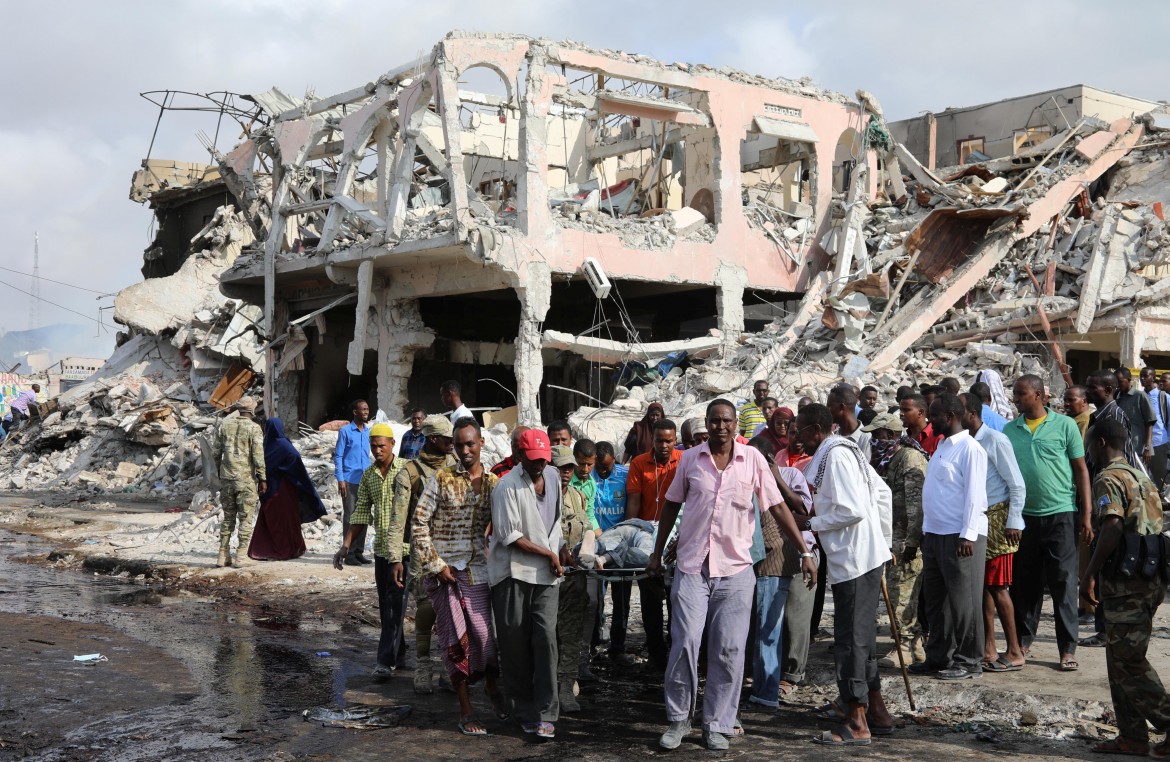Analysis
Mogadishu is an invisible victim in the Saudi-Qatar rivalry
After the worst attack in the city’s history, Somalia is trying to rebuild. But their efforts are hampered by antipathy between the internationally recognized government and Saudi Arabia over Qatar.

I had a phone call to Mogadishu set up in the early afternoon, getting in touch with a Somali friend. “Call me when I get back from work and we can talk,” she had said. But she was late.
“I couldn’t go out,” she explained when we finally spoke. “There was a bomb threat. They said there were two car bombs ready to explode.” Did they explode? “Only one, on the outskirts of Mogadishu, 10 dead. It’s not even news. There are bombings every day.”
Oct. 14 was the deadliest terrorist attack in Somalia’s tormented history. According to official data, 358 died, 228 were wounded and 56 are missing. “There’s no more life in the city,” my friend said. “There are many roadblocks that make the situation even more dangerous, because if you stop many cars in the same place you create better conditions for attacks — the terrorists want more and more victims. There was a mass funeral for the victims of Oct. 14, because after the double explosion it was impossible to tell which body parts belonged to which bodies. And they’re still searching for those missing.”
How are the people reacting? “Unfortunately, right now people are paralyzed by fear. They cannot speak out because they fear reprisals. If you report your neighbor, then at night, when you’re alone, he might come to kill you. Many were complicit in what happened: The cars for the terrorist attacks came from far away, so how did they get past the roadblocks?”
Thirty years of war must have pushed the population into an extreme condition. “But the situation has improved,” she assures me. “The Oct. 14 attack took place next to the headquarters of the Red Cross, a hotel and many shops. After the attack, everything looked like there had been an earthquake, but after a few days, people started to rebuild their shops, and business started back up. As long as the attacks were against the regime, the attitude was more of indifference, but now that civilians have been the ones to die there is a greater reaction, and more unity and support for the government. This could isolate Al-Shabab, who haven’t even claimed this attack. There was also a public demonstration against the attacks. But the government is weak, while the groups fighting it have the support of Saudi Arabia and the UAE.”
What is the goal of Saudi Arabia and the Emirates? “To divide Somalia. They actually provide a lot of aid to Somaliland and Puntland, in order to weaken the federal government and seize the country’s resources.”
This is Saudi Arabia’s revenge for failing to bring Somalia into the anti-Qatar alliance (as Qatar airlines are currently using Somali air space).
Somalia’s president, Mohamed Abdullahi Mohamed, refused the $80 million offered by the Saudis and affirmed Somalia’s “neutrality,” urging (without success) the countries involved in the conflict to resolve their differences through dialogue.
In 2016, however, Somalia, having supported Saudi Arabia in the war against the Houthi in Yemen, received $50 million from Riyadh. Even more, Saudi Arabia remains Somalia’s biggest trading partner.
The UAE, who previously had a military base on the shore of Mogadishu, very unpopular among the local population, have also now opted for the ports of Berbera (Somaliland) and Bosaso (Puntland).
Among those taking advantage of the situation has been Turkey (siding with Qatar in the dispute), which on Sept. 30 opened here the largest overseas Turkish military base, the construction of which started in 2015, for a total cost of $50 million. The base, spread across 400 hectares and including three military schools, will be able to train 10,000 Somali soldiers.
The ties between the Horn of Africa and Turkey date back to the times of the Ottoman Empire, but have been resumed only in recent years, with the sending of aid and two visits to Mogadishu by President Recep Tayyip Erdogan. Since 2010, Turkey has been building schools and hospitals, and in the meantime has unsurprisingly gone from 20th place to fifth among the countries exporting to Somalia.
Such a massive Turkish presence harms other countries that used to have privileged relations with Mogadishu, and this is why some say that the real target of the Oct. 14 attack may have been the Turkish military base.
Moreover, the attack took place three days after the meeting in Mogadishu between representatives of the U.S. military command in Africa (Africom) and the Somali president. After the meeting, the defense minister and the head of the armed forces both resigned, a dramatic gesture that was probably due to a rivalry between the two.
While the Americans — who have an unofficial military presence in Somalia as well, including, it seems, a base at Baledogle — continue to bomb Al-Shabab, the terrorist attacks are continuing.
The hope of restoring peace after the appointment of the new president still appears a long way off, as Somalia now finds itself at the center of the clash between Qatar and Saudi Arabia.
Originally published at https://ilmanifesto.it/mogadiscio-vittima-invisibile-della-rivalita-tra-qatar-e-sauditi/ on 2017-10-26
